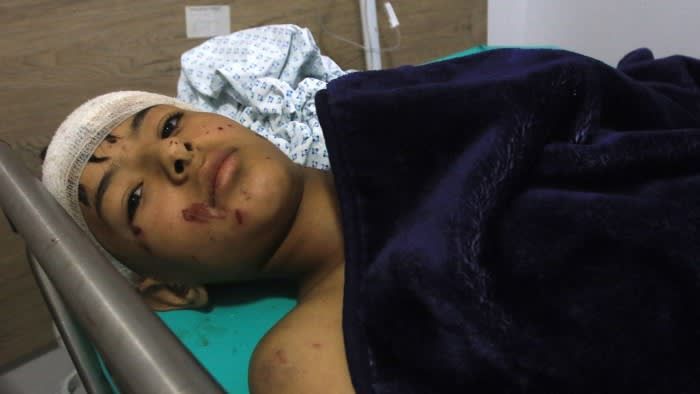Israel launches more strikes on Lebanon in escalating violence

Access the Editor's Digest at no cost.
Each week, Roula Khalaf, the Editor of the Financial Times, curates her top story picks in this newsletter.

On Tuesday, Israel persisted in its attacks on Lebanon, focusing on the southern suburbs of Beirut and various strongholds of Hizbollah. This series of strikes has resulted in the deaths of hundreds and increased concerns about the possibility of a full-scale war.
On Tuesday, Hizbollah persisted in launching attacks on Israel. Sirens blared throughout northern Israel, and some residents in populated areas sustained injuries from flying debris. However, the majority of the rockets, which Hizbollah stated were aimed at military sites and an airstrip, were successfully intercepted.
The exchanges occurred after a significant series of strikes on Monday, during which the Israeli military reported attacking 1,600 targets linked to Hizbollah. These included major weapon depots and hidden cruise missiles, marking what the military described as a "new phase" in its conflict with the Iran-supported militant organization.
Lebanese officials announced that 558 individuals lost their lives, which includes 94 women and 50 children, while over 1,800 were injured in the deadliest single day for the country in many years.
On Tuesday afternoon, an airstrike targeted an apartment complex located in a residential area of Beirut's southern suburbs. A representative from Hizbollah posted a photo on social media showing the building's upper floor destroyed and in ruins.
The street was scattered with rubble, dust hung in the air, and vehicles were damaged at the attack location, as seen in videos shared on social media. According to Lebanese officials, six individuals lost their lives and 15 were wounded.
Global leaders have cautioned that the initiative called “Northern Arrows” by the Israel Defense Forces has pushed the area to the edge of a full-scale war.
During the G7 foreign ministers' gathering at the UN General Assembly, they issued a statement urging an end to "the ongoing harmful cycle."
"The group stated that no nation benefits from increased tensions in the Middle East. They warned that aggressive actions and responses could intensify the cycle of violence, potentially pulling the entire region into a larger conflict with severe and unpredictable outcomes."
Since the attacks began, fear and panic have taken hold of Lebanon. A massive exodus of vehicles clogged the streets as people hurriedly left the southern and eastern regions, where the bombings were focused, and made their way to the capital, Beirut.
Schools nationwide were converted into shelters for those displaced, while some villagers took cover from the bombings in mosques.
Hezbollah reported that on Tuesday, Israel was distributing leaflets featuring barcodes in the Bekaa Valley area of eastern Lebanon. In a statement, the group urged people not to scan or share the barcodes. They warned that these barcodes are extremely dangerous and could gather personal information, advising recipients to destroy them immediately.
While addressing journalists at the United Nations General Assembly in New York, which kicked off on Tuesday, the EU's foreign affairs chief, Josep Borrell, characterized the situation as "very perilous."
“I believe we are very close to entering a full-scale war,” Borrell stated, urging global leaders to take action to stop the conflict from intensifying. “Now is the crucial time to respond, especially here in New York. Everyone needs to do everything they can to prevent this from escalating into war,” he emphasized.
Lebanon's Prime Minister Najib Mikati has made an emergency trip to New York for additional discussions, according to his office. As a result, a cabinet meeting that was set for Tuesday morning has been called off.
Israel stated that it will proceed with its military operations until it feels secure enough for those living in its northern areas, who have been forced to leave due to the conflict, to come back to their homes. The country blamed Hizbollah for instigating the Israeli airstrikes.
To be straightforward, Hizbollah is accountable for the current circumstances. According to Israeli army spokesman Rear Admiral Daniel Hagari, this is part of Hizbollah’s strategy to convert southern Lebanon into a war zone for their assaults on Israel. "We cannot tolerate a terrorist organization hiding weapons in residential areas and using them to target other civilian populations," he stated.
Airlines such as Emirates, Etihad, and Qatar Airways halted flights to and from Beirut on Tuesday. Meanwhile, Wizz Air announced it has stopped its flights from the UK to both Tel Aviv and Jordan.
Israel's Home Front Command has broadened its school closure measures to include additional regions in the northern part of the nation.
Further insights provided by Chloe Cornish from Dubai.





















































